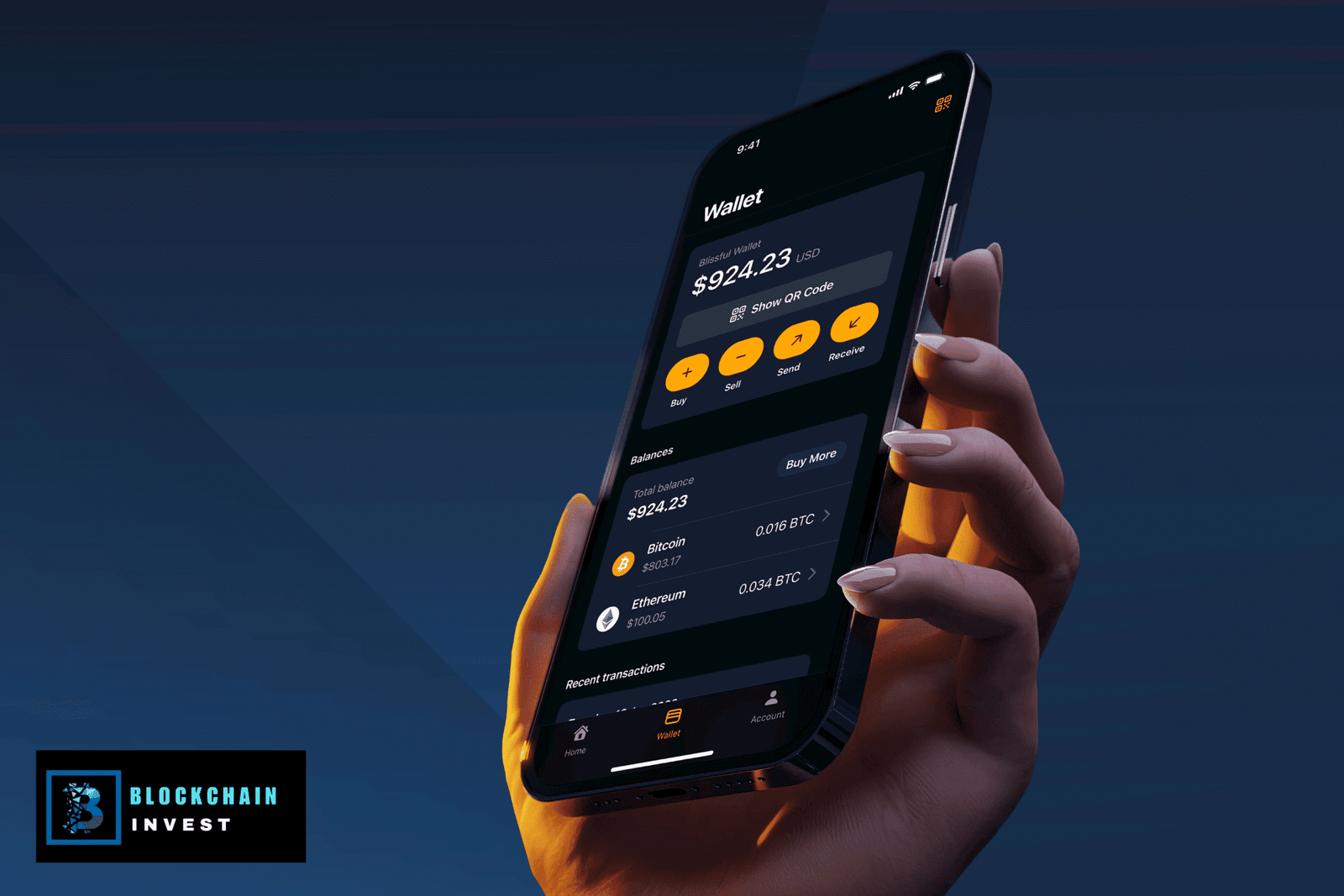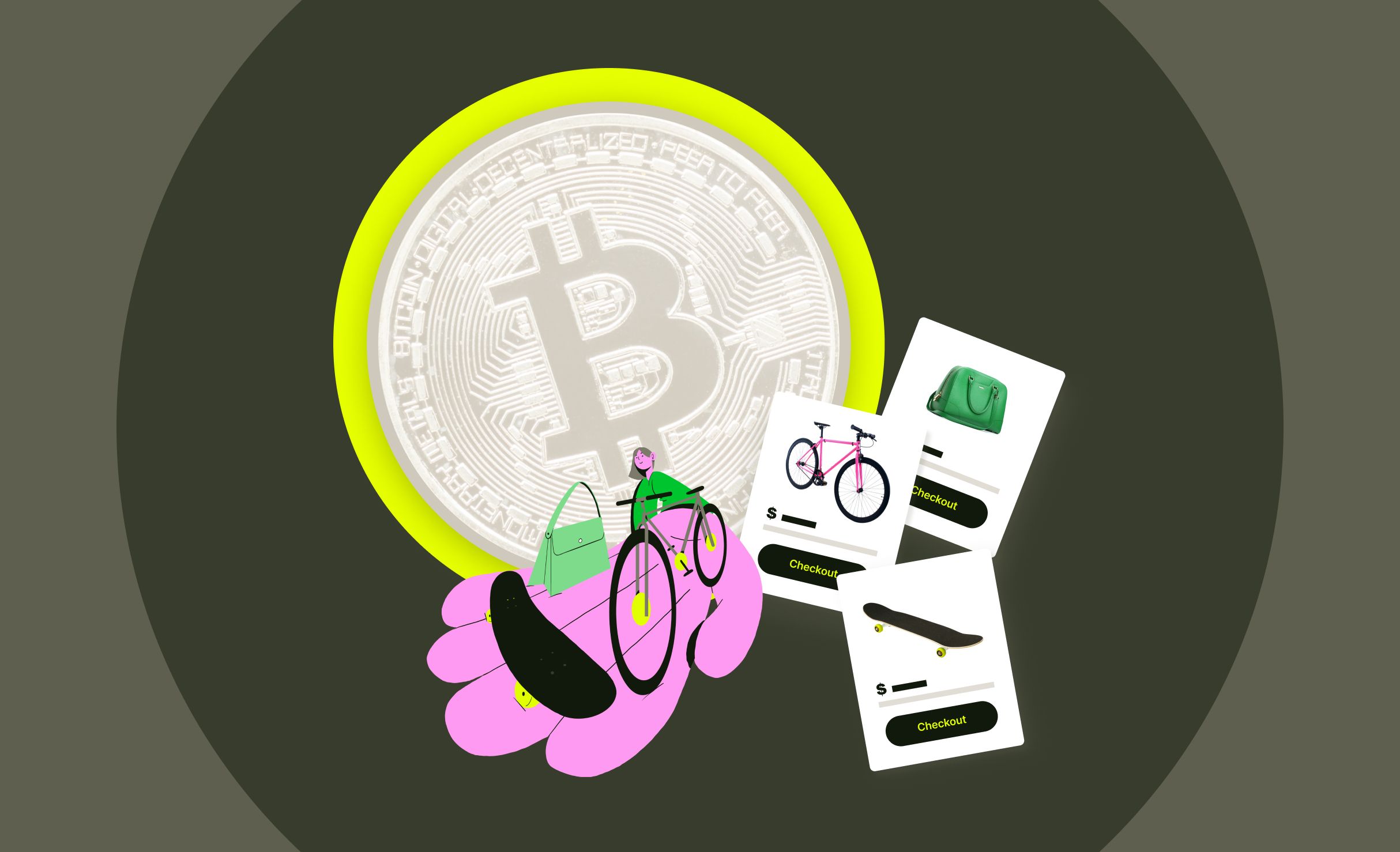Can I Use Bitcoin for Online Purchases? Discover the Benefits
Here’s What’s Inside This Blog Post1 What Is Bitcoin and Why Use It for Online Purchases?1.1 History Of Bitcoin2

Here’s What’s Inside This Blog Post
- 1 What Is Bitcoin and Why Use It for Online Purchases?
- 2 How Bitcoin Transactions Work?
- 3 Where Can You Use Bitcoin for Online Shopping?
- 4 How to Make Online Purchases Using Bitcoin?
- 5 Is It Safe to Use Bitcoin for Online Purchases?
- 6 Potential Drawbacks And Limitations
- 7 Advantages of Using Bitcoin for Online Shopping
- 8 Future Of Bitcoin In E-commerce
- 9 Frequently Asked Questions
- 10 Conclusion
Yes, you can use Bitcoin for online purchases. Many online stores accept Bitcoin as payment.
It’s becoming a popular option for its security and simplicity. Bitcoin, a type of digital currency, allows for quick and secure transactions. With more online retailers accepting Bitcoin, it’s easier than ever to use it for buying goods and services.
Understanding how to use Bitcoin for online purchases can help you make the most of this digital currency. In this blog post, we’ll explore how you can use Bitcoin for online shopping, its benefits, and some things to watch out for. Whether you’re a seasoned crypto user or new to Bitcoin, this guide will help you drive the world of online purchases with effortlessly. Let’s dive in!
What Is Bitcoin and Why Use It for Online Purchases?
Bitcoin is a decentralized digital currency that allows peer-to-peer transactions without relying on a central authority like a bank or government. Introduced in 2009, it has grown into the most recognized and valuable cryptocurrency globally. Its popularity stems from benefits like:
- Lower transaction fees (especially for international payments)
- Quick and secure payments using blockchain technology
- Anonymity and privacy for users
- No need for traditional banking intermediaries
These features make Bitcoin an increasingly attractive payment method for online purchases, especially in regions with limited access to conventional financial systems.
History Of Bitcoin
Bitcoin was created in 2008. An unknown person or group named Satoshi Nakamoto introduced it. The first Bitcoin block, known as the Genesis Block, was mined in January 2009. Bitcoin gained value over time. Early adopters saw potential in this new currency. It became popular among tech enthusiasts and investors. Bitcoin’s first commercial transaction happened in 2010. A programmer bought two pizzas for 10,000 bitcoins.
Bitcoin faced many challenges. Regulatory scrutiny and market volatility were major issues. Despite this, Bitcoin’s value and acceptance grew. Today, many online retailers accept Bitcoin. It is a legitimate form of payment for goods and services. Major companies like Microsoft and Overstock accept Bitcoin.
How Bitcoin Transactions Work?
Bitcoin has changed the way people think about money and transactions. But how do Bitcoin transactions work? This section explains the process in simple terms.
Blockchain Technology
Bitcoin transactions rely on blockchain technology. The blockchain is a public ledger. It records all Bitcoin transactions. Each transaction adds a new block to the chain. This makes the process transparent and secure. Everyone can see the transactions, but personal details stay private.
Wallets And Keys
To use Bitcoin, you need a wallet. A wallet stores your Bitcoin. It also holds your private and public keys. The public key is like your bank account number. You share it to receive Bitcoin. The private key is like your password. It proves you own the Bitcoin in your wallet. Never share your private key.
When you make a purchase, you send Bitcoin from your wallet. You use your private key to sign the transaction. The transaction then gets verified by the network. Once verified, it is added to the blockchain. This whole process takes minutes.
Where Can You Use Bitcoin for Online Shopping?
Many online retailers and service providers now accept Bitcoin either directly or via third-party payment processors. Here’s a breakdown of sectors and platforms that support Bitcoin payments in 2024:
Retailers and E-Commerce Platforms
- Overstock.com – Among the first major retailers to accept Bitcoin for a wide range of products. They have been accepting Bitcoin since 2014.
- Newegg – Tech and electronics giant that accepts BTC.
- Purse.io – Lets users shop on Amazon using Bitcoin with discounted rates.
- Bitrefill – Buy gift cards for Amazon, Uber, Netflix, Airbnb, and more using BTC.
- Etsy – Allows sellers to accept Bitcoin. It’s up to individual sellers to enable this option. Shoppers can buy unique, handmade items with their digital currency.
- Bitify – It’s a marketplace dedicated to Bitcoin users. You can find various products, from digital goods to physical items.
- Shopify – Integrate Bitcoin via payment processors like BitPay or Coinbase Commerce.
Technology & Software
- Microsoft – Accepts Bitcoin for Xbox and Windows Store credits.
- Namecheap – Purchase domain names and hosting services using BTC.
- ExpressVPN – Offers Bitcoin as a secure and private payment option.
Travel and Experiences
- Travala.com – Book hotels, flights, and activities with Bitcoin.
- CheapAir – One of the first travel booking platforms to accept BTC.
- Expedia – allow Bitcoin for bookings
Gift Cards and Vouchers
- Electronic Frontier Foundation – embrace Bitcoin donations
If a specific retailer doesn’t accept Bitcoin directly, you can still use it by purchasing gift cards through services like BitPay or CoinGate.
Landscape of Bitcoin Acceptance
In 2025, Bitcoin is accepted by a diverse range of businesses, reflecting its mainstream adoption. The following table lists major companies and their Bitcoin acceptance methods, based on recent data:
| Company | Details |
|---|---|
| PayPal | Integrated crypto, users can spend at over 26 million merchants worldwide. |
| Microsoft | Allows Bitcoin for account top-ups. |
| AT&T | First major U.S. mobile carrier accepting crypto via BitPay. |
| Starbucks | Allows Bitcoin via Bakkt for reloading Starbucks cards. |
| Whole Foods | Accepts Bitcoin at checkout via Spedn app. |
| Home Depot | Accepts Bitcoin via Flexa Spedn app for tools, building materials, etc. |
| Shopify | Enables crypto payment solutions for shop owners, including Bitcoin. |
| Burger King | Accepts Bitcoin in Venezuela via Cryptobuyer; Germany for online delivery via Lieferservice. |
| KFC | Accepted Bitcoin in Canada for “Bitcoin Bucket” via BitPay (limited time). |
| Overstock | Partners with Coinbase for Bitcoin payments on online orders. |
| Twitch | Accepts Bitcoin and Bitcoin Cash for services, re-enabled in June 2019. |
| Pizza Hut | Accepts Bitcoin in Venezuela as of November 2020. |
| Miami Dolphins | Plans to accept Bitcoin for 50/50 raffle tickets. |
| Dallas Mavericks | Accepts Bitcoin for game tickets and merchandise via BitPay. |
| Virgin Galactic | Accepts Bitcoin for space travel. |
| Norwegian Air | Plans to accept Bitcoin for ticket payments. |
| Namecheap | Accepts Bitcoin since 2013 for domain registrations. |
| CheapAir | Accepts Bitcoin for travel bookings, switched to BTCPayServer. |
| NewEgg | One of the first to accept Bitcoin for electronics. |
This list, sourced from 99Bitcoins – Who Accepts Bitcoins, highlights the breadth of industries, from retail to travel, embracing Bitcoin. Users can find additional merchants using search engines like Spendabit, which indexes millions of products available for Bitcoin purchases, or BitcoinWide, a global platform for locating Bitcoin-accepting businesses.
How to Make Online Purchases Using Bitcoin?
Making a purchase with Bitcoin is simple once you have a wallet and some BTC. Here’s how it works:
1. Set Up a Bitcoin Wallet
First things first, you need a Bitcoin wallet. Think of this as your digital pocket. There are various types of wallets available, such as mobile apps like Coinbase or hardware wallets like Ledger.
Download a wallet app and create an account. Make sure to set up strong security measures like two-factor authentication to keep your Bitcoins safe.
Once your wallet is set up, you’ll need to add some Bitcoin to it. You can buy Bitcoin directly from the wallet app or through a cryptocurrency exchange like Binance or Kraken.
Choose a secure wallet to store your Bitcoin. Popular options include:
- Software wallets (e.g., Trust Wallet, Electrum, Exodus)
- Hardware wallets (e.g., Ledger, Trezor)
- Mobile wallets (e.g., BlueWallet, Muun)
2. Buy Bitcoin from an Exchange
Use a reputable exchange like Coinbase, Binance, or Kraken to buy Bitcoin. Ensure the platform is regulated and secure.
3. Choose a Bitcoin-Compatible Merchant
Look for online stores that clearly list Bitcoin as a payment option. At checkout, choose Bitcoin and follow the instructions.
4. Send the Payment
Scan the merchant’s QR code or copy their wallet address. Confirm the amount and complete the transaction from your wallet.
5. Confirmation & Delivery
Most transactions are confirmed within minutes. Once confirmed, the merchant processes your order as usual.
Is It Safe to Use Bitcoin for Online Purchases?
Yes—if done correctly. Bitcoin transactions are secured through cryptographic algorithms on the blockchain, making them nearly impossible to hack. However, users must still follow safe practices:
- Use secure wallets with private key control
- Avoid phishing sites and fake wallet apps
- Double-check the merchant’s wallet address
- Only shop with reputable websites that accept BTC
Security Aspects of Bitcoin Payments
Using Bitcoin for online purchases can be both exciting and nerve-wracking. One of the main concerns people have is security. How safe is it to use Bitcoin for transactions? Let’s break down the security aspects to help you understand better.
Encryption And Safety
Bitcoin transactions are secured through advanced encryption techniques. Each transaction is recorded on a public ledger called the blockchain, which ensures transparency and not changeable.
When you make a purchase with Bitcoin, your transaction details are encrypted. This means that even if someone intercepts the data, they won’t be able to read it.
Moreover, Bitcoin wallets add another layer of security. They use private keys to authorize transactions. Imagine it as a digital signature that only you can use.
Avoiding Scams
Despite the strong encryption, scams still exist. Be cautious of deals that seem too good to be true. Always verify the credibility of the website or seller before making a purchase.
I remember once I was tempted by a huge discount on a tech gadget. Luckily, I researched and found out it was a scam. This saved me from losing my Bitcoin.
Use reputable platforms for transactions. Websites like Coinbase and BitPay are known for their security measures. They offer buyer protection and have robust security protocols.
Stay informed. The more you know about the security features and potential scams, the better you can protect your Bitcoin.
Because Bitcoin payments are irreversible, mistakes can’t be undone—so awareness is crucial.

Potential Drawbacks And Limitations
While Bitcoin offers exciting possibilities for online purchases, it’s essential to understand its potential drawbacks and limitations. Users should be aware of the risks involved.
❌ Not all retailers accept Bitcoin
❌ Price volatility can affect value at time of purchase
❌ No chargeback protection (unlike credit cards)
❌ Network congestion may cause slow or costly transactions at peak times
Volatility
Bitcoin’s value can fluctuate significantly. Prices can change rapidly within hours or even minutes. This volatility poses risks for both buyers and sellers. Buyers might end up paying more or less than expected.
Sellers might receive less value than anticipated. Such unpredictability makes transactions less stable and reliable. Many businesses hesitate to accept Bitcoin due to this instability.
Regulatory Issues
Bitcoin operates outside traditional financial systems. Governments and authorities often have conflicting views on its use. Some countries have strict regulations or bans on Bitcoin transactions.
Others have limited or unclear rules. This regulatory uncertainty can complicate online purchases. Users might face restrictions or legal challenges when using Bitcoin.
Businesses may also encounter compliance issues. This makes it difficult for Bitcoin to be widely accepted as a payment method.
Advantages of Using Bitcoin for Online Shopping
✔️ Borderless payments – No need for currency conversion
✔️ Lower transaction fees – Especially for large or international purchases
✔️ Enhanced privacy – No need to share banking details
✔️ Censorship-resistant – Great for users in restricted financial environments
Future Of Bitcoin In E-commerce
The future of Bitcoin in e-commerce looks promising. More online stores are starting to accept this digital currency. This shift brings new opportunities and challenges.
Growing Acceptance
Many e-commerce platforms now accept Bitcoin. This growing acceptance makes it easier for consumers to use their Bitcoin for purchases. Major brands see the benefits. They integrate Bitcoin payment options into their systems. This trend is likely to continue. As more people use Bitcoin, more stores will accept it. This creates a positive cycle.
Technological Advancements
Technological advancements support Bitcoin’s use in e-commerce. Improved security measures protect transactions. Faster processing times enhance user experience. New platforms make it simple to integrate Bitcoin payments. These advancements make Bitcoin more attractive to online retailers. They also boost consumer confidence in using Bitcoin. As technology evolves, Bitcoin’s role in e-commerce will likely grow.
Looking ahead, Bitcoin’s role in online purchases is poised for further expansion. Technological advancements, such as improved scalability through the Lightning Network, are likely to enhance transaction efficiency, making Bitcoin more competitive with traditional payment methods. Institutional adoption, evidenced by the approval of spot Bitcoin ETFs in January 2024 by the U.S. Securities and Exchange Commission (SEC Statement on Spot Bitcoin ETFs), suggests increasing legitimacy and acceptance. Additionally, as regulatory frameworks clarify, more merchants may adopt Bitcoin, potentially expanding its use to new sectors like healthcare and education.
Frequently Asked Questions
Can I Use Bitcoin To Buy Things Online?
Yes, you can use Bitcoin to buy things online. Many online retailers accept Bitcoin as a payment method.
Can You Pay Online With Bitcoin?
Yes, you can pay online with Bitcoin. Many online retailers and services accept Bitcoin as a payment method.
Is It Worth Having $100 In Bitcoin?
Investing $100 in Bitcoin can be worth it. It allows you to gain exposure to cryptocurrency. Bitcoin’s value can fluctuate, offering potential growth. Always research and invest wisely.
How Do I Turn My Bitcoin Into Cash?
To turn Bitcoin into cash, use a cryptocurrency exchange like Coinbase or Binance. Transfer Bitcoin to the exchange, then sell it for your local currency. Withdraw the funds to your bank account. Ensure the exchange supports your country and currency.
Always check fees and processing times.
Conclusion
In 2024, Bitcoin is accepted by a growing number of online merchants, services, and platforms—either directly or through intermediaries. With the right wallet, secure practices, and awareness of price volatility, Bitcoin offers a fast, global, and secure way to pay online. However, it’s important to stay informed, verify the legitimacy of merchants, and use trusted tools to manage your crypto transactions.
Always check the store’s payment options first. Consider transaction fees and conversion rates. Bitcoin can be a good choice for tech-savvy shoppers.
Just ensure you understand the risks. Happy shopping!
💡 Pro Tip: Consider using crypto debit cards (like Coinbase Card or Binance Card) that let you spend Bitcoin instantly anywhere Visa or Mastercard is accepted.
🔎 Want more tips on spending, saving, and investing Bitcoin? Subscribe to our blog for the latest crypto guides, security updates, and expert insights!











